
Welcome to instalment three of our brief mini-series of weekly instalments focussed on the Aces of the Deep- the Top Ten U-boat Commanders of World War 2.
The subject of this weeks instalment is Herbert Schultze
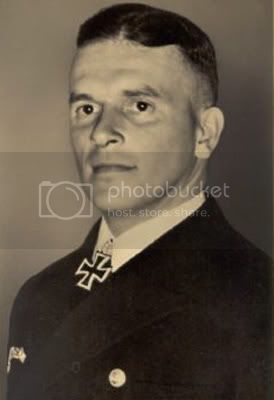
Image courtesy of www.u-boat.net/
Lieutenant Commander Herbert Schultze was born in Kiel on the 24th of July 1909. He commanded U-48 for eight patrols during the early part of the war, sinking 169.709 GRT and earning him eighth place on the Aces of the Deep list.
Due to several incidents of openly broadcasting his sinkings to alert the Allies of the plight of their crews, he became quite a celebrity on both the Allied and German sides.
Herbert Schultze joined the Reichsmarine in April 1930. On the 9th of October 1930 he became a Seekadett. He served aboard the light cruisers Leipzig and Karlsruhe with other future U-boat aces, including Heinrich Lehmann-Willenbrock.
In May 1937, with a rank of Oberleutnant zur See, Schultze transferred to the U-boat force, taking command of the Type IIA U-boat U-2 on the 31st of January 1938. The U-2 was assigned to the U-Bootschulflottille (U-boat school flotilla), and Schultze spent the next year and a half training with the submarine.
Extract from www.u-boat.net/
On the 22nd of April 1939 Schultze commissioned U-48, a Type VIIB U-boat. U-48 was later to become the most successful submarine of the war. U-48 The famed boat of was known as "Dreimal Schwartze Katter" or the 'Three Black Tomcats'
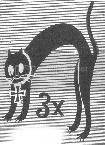
Image courtesy of www.u-boataces.com
U-48 was assigned to 7. Unterseebootsflottille, and spent the next four months in training. On the1st of June 1939 Schultze was promoted to Kapitänleutnant.
Soon after the war started on the 1st of September 1939 Schultze took U-48 out on its first patrol. It was successful, resulting in three ships sunk for a total of 14,777 tons. During this patrol he became famous for the radio message he sent in plain language after sinking the Firby on the 11th of September:
"cq - cq- cq - transmit to Mr. Churchill. I have sunk the British steamer "Firby". Posit 59.40 North and 13.50 West. Save the crew, if you please.
German submarine."
This message, addressed to the First Lord of the Admiralty Winston Churchill directly, made Schultze famous, both in Germany and Great Britain.
After returning to base Schultze gave an interview to an American reporter on the 29th of September 1939. The interview was recorded and broadcast both in the United States and Great Britain.
The US journalist William L. Shirer gave a good description of Herbert Schultze in this report filed in 1939:
Berlin, September 29
“At midnight tonight I did a microphone interview with Germany's ace submarine skipper, Captain Herbert Schultze. It turned out much better than I expected. During the afternoon and evening I had had many doubts and a big headache. With the help of some naval officer friends, I cornered Schultze in the Admiralty this afternoon. He was just back from his first "killing". He turned out to be a clean-cut fellow of thirty, hard as nails and full of that bluff self-confidence which you get, I suppose, when you gamble daily with your own life and the lives of others.
He was a little afraid of his English, he said, and after listening to a specimen, I was too. In fact, I couldn't understand a word he said and we had to converse in German. Someone suggested that his English would improve during the afternoon, that he was merely a little rusty. This offered hope, and I cabled New York that the interview was on for tonight. I put my questions to him and the captain sat down to write out answers in German. When he had finished a page, I dictated an English translation to an Admiralty secretary who for some reason wrote English faultlessly but had great difficulty in understanding it when spoken. We sweated away all afternoon - four hours - and finally achieved a fifteen-minute script.
There were two points in the script, the very ones which made it most interesting, which added to my own perception. The captain told a story of how he had torpedoed the British ship Royal Sceptre, but, at the risk of his own skin, had arranged rescue of those aboard by another British vessel, the Browning. Now, a few days before, I remembered, London had reported that the Royal Sceptre had been torpedoed without warning and that the crew and passengers, numbering sixty, had presumably perished. I wondered who was right.
Captain Schultze, as we worked out our interview, also mentioned that he was the U-boat commander who had sent a saucy radio message to Mr. Winston Churchill advising him of the location of a British ship which he had just sunk so that the First Lord might save the crew. But only a day or two before, Mr. Churchill had told the House of Commons that the German submarine commander who had sent him that message had been captured and was now a prisoner of His Majesty's government.
I reminded the captain of that, and asked him if he could give me the text of his message. His logbook was at Kiel, but we telephoned there and had the message read back to us. That made me feel a little better. Shortly before the broadcast this evening something else happened which made me feel better still. As we were leaving the Admiralty, an officer brought us a Reuter dispatch saying that the Browning had just landed at Bahia, Brazil, with the crew and passengers of the Royal Sceptre all safe.
One good break followed another. To my surprise, as our broadcast got under way, the captain's English did indeed improve, just as predicted. His accent was terrific, but in some way his words poured out very distinctly. You could understand every syllable. Most men of his type, I've found, when put before a microphone, read their lines mechanically. But to my delight he proved to be a natural speaker, talking as though we had never written a line.
(Later the British Admiralty confirmed his version of both the Royal Sceptre episode and the saucy message to Mr. Churchill, including the fact that Schultze had not been captured)."
William L. Shirer: Berlin Diary 1934 - 1941.
Extract from www.u-boat.net/
The following three patrols were also very successful and as a result, in March 1940, Herbert Schultze became the second U-boat officer to be awarded the Knights Cross. In May 1940 he turned over command of U-48 to Hans Rudolf Rösing and spent five months in hospital suffering from a stomach and kidney disorder. From October to December 1940 he was deputy commander of the 7th Flotilla in St Nazaire.
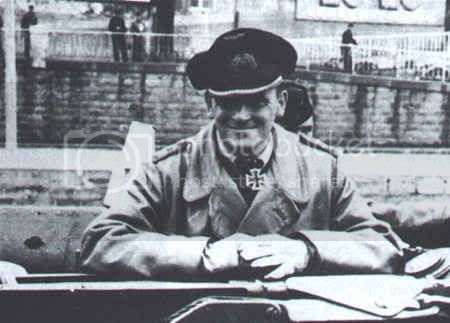
In December 1940 Schultze resumed command of U-48, taking over from Heinrich Bleichrodt. The next three patrols were so successful that he was decorated with the Knights Cross with Oak Leaves on the 12th of June 1941.
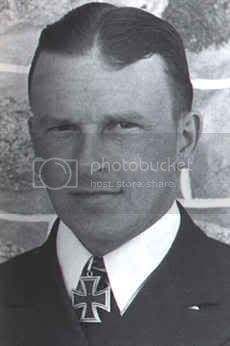
Image courtesy of www.u-boat.net/
He was nicknamed "Vaddi" (Daddy) Schultze because he had a reputation of taking very good care of his crew.
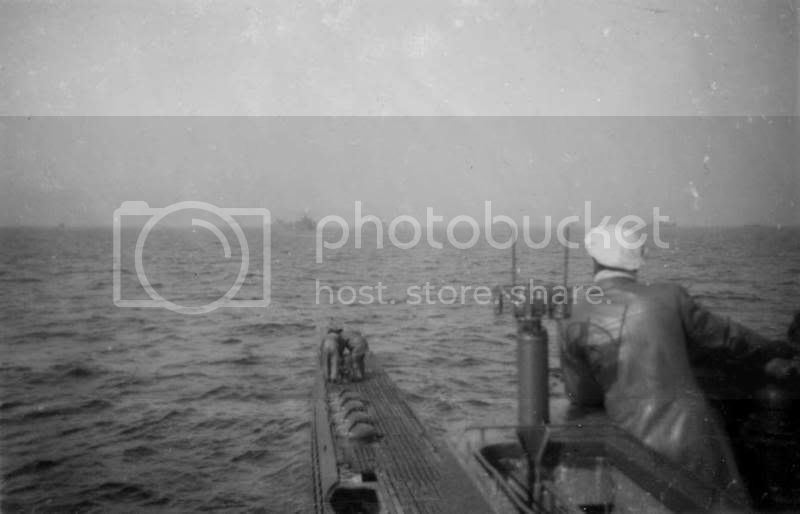
Image courtesy of www.u-boat.net/
In July 1942 he left U-48 and became commander of the 3rd Flotilla in La Rochelle. In March 1942 he was attached as the Asto (admiral staff officer) for U-boats to the staff of the "Marinegruppe Nord". In December 1942 he joined Dönitz's staff. In March 1944 he left the BdU staff and became a department leader in the Marinekriegsschule Mürwik (naval war college), where he served to the end of the war.
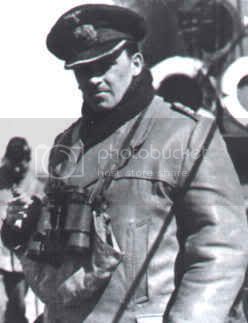
In 1956 Herbert Schultze joined the Bundesmarine and served in several staff positions, including another two years at the now renamed Marineschule Mürwik. He retired in September 1968 as Kapitän zur See.
Extract from www.u-boat.net/
He retired in September 1968. Schultze died in June 1987 in London
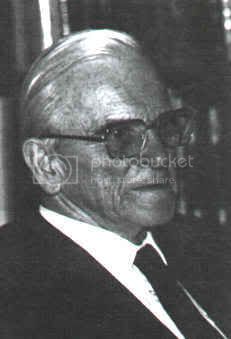
Herbert Schultze in his seventies.
Image courtesy of www.u-boat.net/
During Schultze's funeral, Otto Kretschmer spoke for the old U-boat comrades:
"Hochgeachtet von Freund und Feind, verehrt von seiner Besatzung, war Herbert Schultze ein vorbildlicher Seeoffizier bester Tradition."
Otto Kretschmer
(Deeply respected by friend and foe, revered by his crew, Herbert Schultze was an exemplary naval officer in the best tradition.)
Outlined below are the very impressive statistics of Herbert Schultze’s outstanding career achievements as an “Ace of the Deep”.
Ranks attained
9 October, 1930 Seekadett
1 January, 1932 Fähnrich zur See
5 April, 1934 Oberfähnrich zur See
1 October, 1934 Leutnant zur See
1 June, 1936 Oberleutnant zur See
1 June, 1939 Kapitänleutnant
1 April, 1943 Korvettenkapitän
Statistical information courtesy of www.u-boat.net/
Decorations received
25 September, 1939 Iron Cross 2nd Class
25 October, 1939 U-boat War Badge 1939
27 October, 1939 Iron Cross 1st Class
1 March, 1940 Knights Cross
12 June, 1941 Knights Cross with Oak Leaves
15 July, 1941 U-boat War Badge with Diamonds
Statistical information courtesy of www.u-boat.net/
Patrol summary
A total of 8 patrols and 228 days at sea
U-boat 48 Departed on the 19th of August, 1939 from Kiel and arrived at Kiel on the 17th of September, 1939. A total patrol of 30 days
U-boat 48 Departed on the 4th of October, 1939 from Kiel and arrived at Kiel on the 25th October, 1939 . A total patrol of 22 days
U-boat 48 Departed on the 20th of November, 1939 from Kiel and arrived at Kiel on the 20th of December Dec, 1939 . A total patrol of 31 days
U-boat 48 Departed on the 24th of January, 1940 from Kiel and arrived at Kiel on the 26th of February, 1940 . A total patrol of 34 days
U-boat 48 Departed on the 3rd of April, 1940 from Kiel and arrived at Kiel on the 20th of April, 1940 . A total patrol of 18 days
U-boat 48 Departed on the 20th of January, 1941 from Kiel and arrived at St. Nazaire on the 27th of February, 1941. A total patrol of 39 days
U-boat 48 Departed on the 17th March, 1941 from St. Nazaire and arrived at St. Nazaire on the 8th of April, 1941. A total patrol of 22 days
U-boat 48 Departed on the 22nd of May, 1941 from St. Nazaire and arrived at Kiel on the 21st of Jun, 1941. A total patrol of 31 days
Statistical information courtesy of www.u-boat.net/
Vessels hit by Herbert Schultze
5 September, 1939 Royal Sceptre
8 September, 1939 Winkleigh
11 September, 1939 Firby
12 October, 1939 Emile Miguet
13 October, 1939 Heronspool
13 October, 1939 Louisiane
14 October, 1939 Sneaton
17 October, 1939 Clan Chisholm
27 November, 1939 Gustaf E. Reuter
8 December, 1939 Brandon
9 December, 1939 San Alberto
15 December, 1939 Germaine
10 February, 1940 Burgerdijk
14 February, 1940 Sultan Star
15 February, 1940 Den Haag
17 February, 1940 Wilja
1 February, 1941 Nicolas Angelos
24 February, 1941 Nailsea Lass
29 March, 1941 Germanic
29 March, 1941 Hylton
29 March, 1941 Limbourg
2 April, 1941 Beaverdale
3 June, 1941 Inversuir damaged
5 June, 1941 Wellfield
6 June, 1941 Tregarthen
8 June, 1941 Pendrecht
Statistical information courtesy of www.u-boat.net/
Look out for next weeks instalment as we focus on our next Ace of the Deep
Cheers
Sean
Footnote
In compiling each instalment I make reference to a number of established reputable sources both web and reference books.
It is acknowledged that a part or portion of the above information may have been sourced from the following sources and credit is duly acknowledged:
Bibliography – websites
Wikipedia
www.u-boat.net/
u-boat waffe
U-Boats at War
U-Boats in Action Squadron/Signal
www.u-boataces.com
www.historylearningsite.co.uk
www.uboatarchive.net/
www.u-boat-reich.co.uk
www.german-navy.de/kriegsmarine/ships/uboats/
www.ubootwaffe.net/
Bibliography – books
U-Boats Destroyed: German Submarine Losses in the World Wars by Paul Kemp
Dönitz and the Wolf Packs by Bernard Edwards
Wolf, U-Boat Commanders in World War II by Jordan Vause
German U-Boat Crews 1914-45 by Gordon Williamson and illustrated by Darko Pavlovic
Neither Sharks nor Wolves - The Men of Nazi Germany's U-Boat Arm 1939-1945 by Timothy P Mulligan
Teddy Suhren: Ace of Aces: Memoirs of a U-boat Rebel by Teddy Suhren
U-boat War Patrol: The Hidden Photographic Diary of U-564 by Lawrence Paterson
KRIEGSMARINE U-BOATS: 1939 - 1945 by Chris Bishop
U-Boat Ace: The Story of Wolfgang Luth by Jordan Vause
U122: The Diary of a U-boat Commander by Karl Von Schenk and Etienne
Iron Coffins: A Personal Account of the German U-Boat Battles of World War II by Herbert A. Werner
Shooting the War: The Memoir and Photographs of a U-Boat Officer in World War II by Otto Giese and James E. Wise
U-Boats: The Illustrated History of the Raiders of the Deep by David Miller
To the Last Salute: Memories of an Austrian U-Boat Commander by Georg von Trapp and Elizabeth M. Campbell
Wolf Pack: The Story of the U-Boat in World War II (General Military) by Gordon Williamson
The Longest Patrol: A U-Boat Gunner's War by Gregory L. Owen
The U-Boat: The Evolution and Technical History of German Submarines by Eberhard Rossler
Hitler's U-Boat War: The Hunters, 1939-1942 by Clay Blair
Wolf: U-Boat Commanders in World War II by Jordan Vause
Silent Hunters: German U-Boat Commanders of World War II by Theodore P. Savas
The U Boat Commanders Handbook by The High Command of the German Navy, High Command of the German Army, Kriegsmarine, and Wehrmacht
Knights of the Wehrmacht: Knight's Cross Holders of the U-Boat Service (Knights of the Wehrmacht) by Franz Kurowski
U-boat Combat Missions: The Pursuers and the Pursued - First-hand Accounts of U-boat Life and Operations by Lawrence Paterson
"These posts (by a volunteer with no financial interests in KitMaker or Model Shipwright) were meant to be informative and done in the spirit of 'fair-use' as outlined by US copyright law. Further we are asking all users of the site to (as a courtesy, not a legal requirement) give credit to any sources of information they may post.
Also it is the site owners policy that if a copyright owner takes issue with any of their material being used by modelers on a community based web site such as this, than they can contact us to ask that the information be removed."









